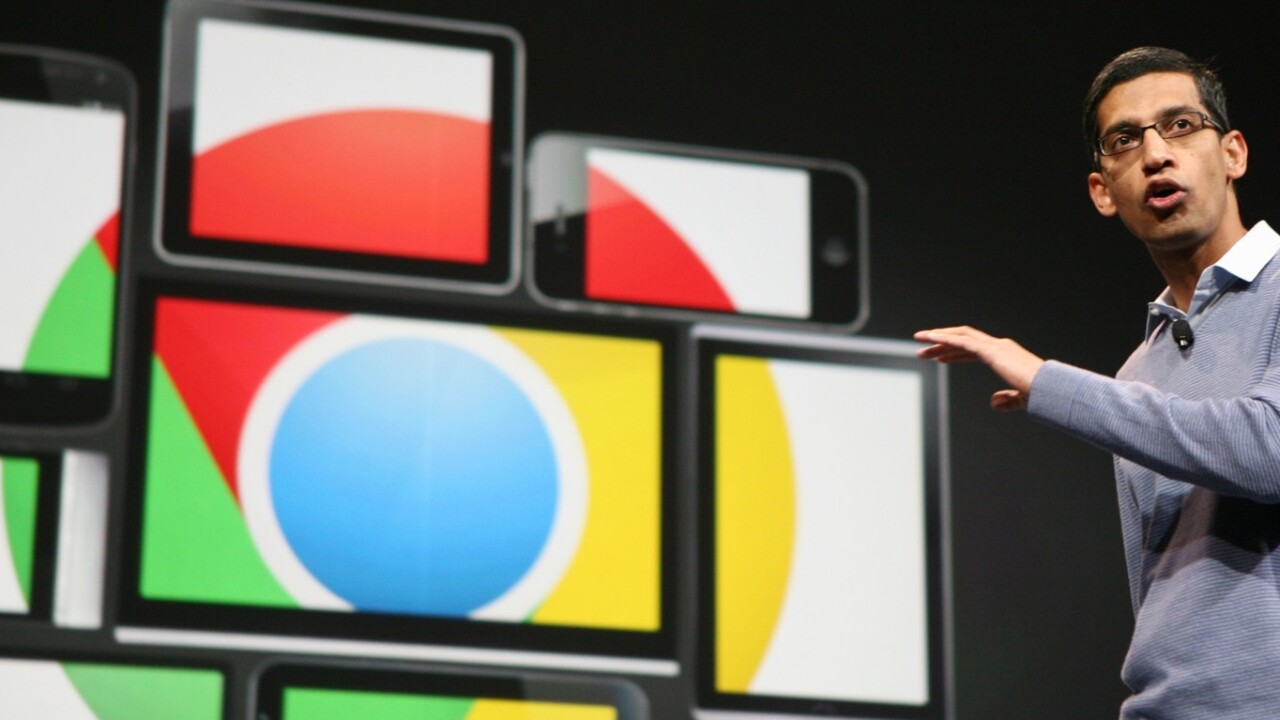
I’ve spotted an interesting change in the way I use my MacBook Pro recently– I’m using Chrome to do increasing amounts of work. I’d say a good 90 percent of my computer usage now happens inside of Chrome.
Pretty much the only non-Chrome apps I use most days are Skype (although I try to push people towards a call in Hangouts as the user experience is lightyears ahead), Pixelmator for image editing (it’s slightly faster than using a Chrome app) and Convo for communicating with the rest of the TNW team (I could use Chrome for this but there’s no dedicated Convo app for Chrome yet, so no way to get desktop notifications).
Even essential desktop Mac apps like Mail, Calendar and Maps sit redundant in my Dock since I find it far more efficient to do everything from one app. The recent introduction of the Chrome App Launcher in the Mac Dock has only pushed me further into Chrome monogamy.
Chrome OS: Google’s ubiquitous operating system in waiting
I know you’re thinking: “Why don’t you just get a Chromebook, Martin?”
Well, there are times when I do want the extra features a Mac offers, such as the ability to play around with music production ideas in Logic Pro or edit videos that I shoot on the go at conferences. Most of the time though, I’d welcome the ability to use Chrome OS — a dedicated Chrome environment.
From this week, Windows 8 users have that option, thanks to a new feature that launches a full version of the Chrome OS UI over the top of Windows. It’s too early to say how popular the new option will be, but it’s a move that makes sense – draw Microsoft’s customers deeper into the Google/Chrome universe without them having to buy a new computer. They use more Google services, and the Chrome developer ecosystem gets a boost from increased usage of Chrome apps.
It’s a safe enclave on every user’s computer too, protecting Google from any YouTube/Windows Phone-style disputes that may arise in the future.
There’s no sign of Google taking a similar approach on the Mac yet, but it makes sense that they would at some point. Lots of people already love Google products; if the company can make Chrome OS available everywhere and market it as the operating system that you can use on any machine anywhere, it will suck more people deeper into Google dependence.
Some may be skeptical of the merits of anyone become even more reliant on Google than they already are (the reaction to the Nest acquisition this week demonstrates the strong undercurrent of anti-Google sentiment in the technology community), but ‘Chrome OS everywhere’ makes sense as a business move for Google and it would probably be appealing to millions of users too.

On mobile, Google obviously has Android tied up (there’s been talk of Chrome and Android merging for a long time), and the way it’s linked its iOS apps together achieves a similar aim. Recent talk of Chrome Apps coming to mobile platforms points to another big step forward, too.
Throw in satellite products like Chromecast and the forthcoming ‘Chromoting‘ remote access app for mobile devices (update: as a reader notes in the comments, there’s already a Chrome Remote Desktop app for use with desktop computers), and the idea of Chrome OS as a something that users can access anywhere makes even more sense. Maybe then, the 90 percent of work time that I’m spending in Chrome might rise to become a full 100 percent.
Related: Do desktop apps still matter today?
Get the TNW newsletter
Get the most important tech news in your inbox each week.






